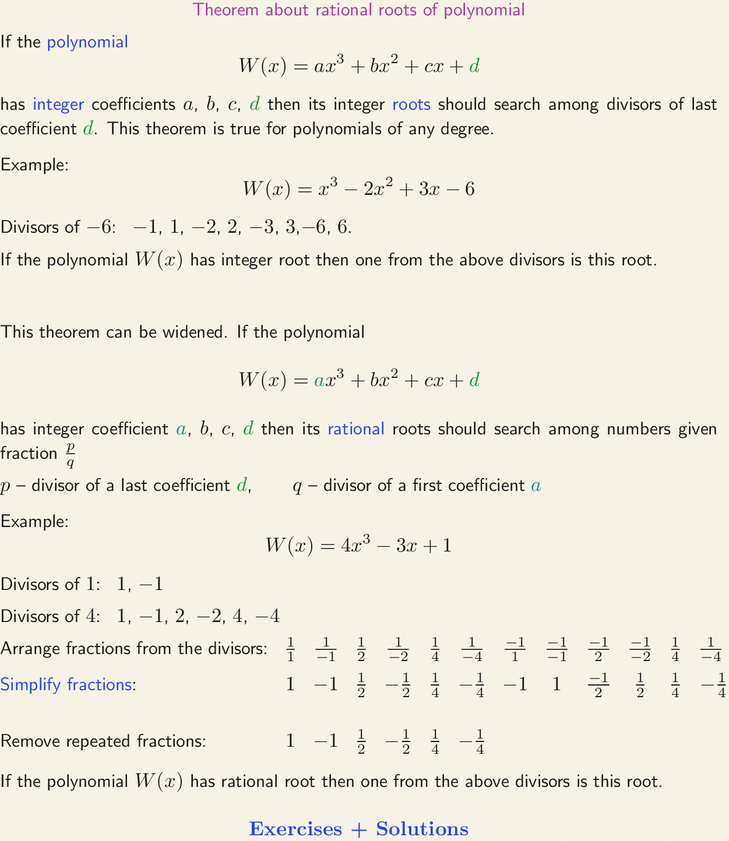mathinschool.com
numbers and algebraic expressions
logic, sets, intervals
absolute value
function and its properties
linear function
quadratic function
polynomials
rational function
exponential function
logarithm
number sequences
limits of sequences and functions
derivative and integral of functions
trigonometry
plane geometry
analytic geometry
solid geometry
combinatorics
probability
elements of statistics
kropki game

If the polynomial W(x) = ax^3 + bx^2 + cx + d has integer coefficients a, b, c, d then its integer roots should search among divisors of last coefficient d. This theorem is true for polynomials of any degree. Example: W(x) = x^3 - 2x^2 + 3x - 6. Divisors of -6: -1, 1, -2, 2, -3, 3, -6, 6. If the polynomial W(x) has integer root then one from the above divisors is this root. This theorem can be widened. If the polynomial W(x) = ax^3 +bx^2 + cx + d has integer coefficient a, b, c, d then its rational roots should search among numbers given fraction p/q, p - divisor of a last coefficient d, q - divisor of a first coefficient a. Example W(x) = 4x^3 - 3x + 1. Divisors of 1: 1, -1. Divisors of 4: 1, -1, 2, -2, 4, -4. Arrange fractions from the divisors: 1/1, 1/(-1), 1/2, 1/(-2), 1/4, 1/(-4), -1/1, -1/(-1), -1/2, -1/(-2), 1/4, 1/(-4). implify fractions: 1, -1, 1/2, -1/2, 1/4, -1/4, -1, 1, -1/2, 1/2, 1/4, -1/4. Remove repeated fractions: 1,-1, 1/2, -1/2, 1/4, -1/4. If the polynomial W(x) has rational root then one from the above divisors is this root.